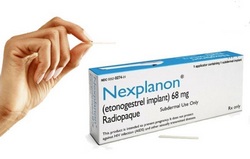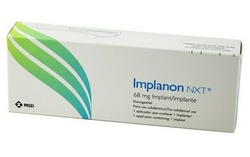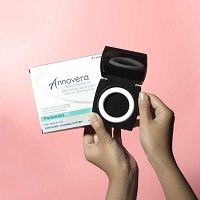
Contraception is a unique means of not only helping to avoid unwanted pregnancy but also to get additional health benefits. The presented review is about birth control for women in their 30s.
High-Priced Contraceptives for Women Over 30
Intrauterine device
One of the most common and effective methods of preventing unwanted pregnancy is the intrauterine device, which does not have any negative effect on the body of a woman and her unborn child. The intrauterine device is recommended for women who have already given birth, who have a permanent sexual partner and have no inflammatory diseases of the genital organs, ectopia of the cervix, mastopathy, endometriosis, uterine fibroids.
Remember that an intrauterine device does not protect against sexually transmitted diseases!
After the intrauterine device is removed, most women become pregnant within a year. The contraceptive is inserted and removed by a doctor only.
Most intrauterine devices contain copper or levonorgestrel, Most popular options are Mirena, Skyla, Kyleena, ParaGard, Copper T, and Liletta.
Implant
Etonogestrel (Implanon, Nexplanon) is a modern method of long-term reversible contraception. The installation of a subcutaneous implant containing a progestogen allows you to forget about other methods of contraception for as long as 3 years and not worry about an unwanted pregnancy.
The implant is a small flexible rod 4 cm long and only 2 mm in diameter. The gynecologist places it under the skin from the inner side of the forearm through a small puncture using a special applicator. The procedure is carried out under local anesthesia. After installation, the implant is completely invisible, it can be felt only when pressing on the injection site.
Etonogestrel is a long-acting hormonal contraceptive, it reliably suppresses ovulation. According to clinical studies, the effectiveness of the implant is 99.9%. At the same time, it is a reversible contraceptive. Once the implant is removed, the hormonal background is restored within 100 hours, ovulation is restored within 3 months. A woman can consult a gynecologist to remove the implant at any time she wishes.
When using etonogestrel implant, as well as other contraceptives containing progestogen, the nature of periods may change. For all questions about this type of contraception, you should consult gynecologists.

Nexplanon Review
- Active Ingredient: Etonogestrel
- Release Form: Implant
- Age: 18 - 70 years
- Average Price: $950 - $1300

Etonogestrel Implant Review
- Active Ingredient: Etonogestrel
- Release Form: Implant
- Age: 18 - 45 years
- Average Price: $950 - $1300

Implanon Review
- Active Ingredient: Etonogestrel
- Release Form: Implant
- Age: 18 - 40 years
- Average Price: $950 - $1300
Vaginal ring
Compared to other drugs, a contraceptive ring has a minimal extraneous effect on the body: it contains fewer hormones than any other drug – only 15 micrograms of estrogen. Due to the local route of administration, the ring does not load the liver and gastrointestinal tract. Side effects of the vaginal ring are extremely rare, it does not affect weight. The ability to conceive is fully restored within a month after the drug withdrawal.
As well as the intrauterine device, the contraceptive vaginal ring does not protect against sexually transmitted diseases! Therefore, this method is more suitable for women who have a permanent sexual partner.
Examples of contraceptive rings include NuvaRing, Annovera, and EluRyng.

Annovera Review
- Active Ingredient: Segesterone Acetate / Ethinyl Estradiol
- Release Form: Vaginal Ring
- Age: 18 - 40 years
- Average Price: $1981.20
Copper T IUD Review
ParaGard Review
Kyleena Review
Skyla Review
Liletta Review